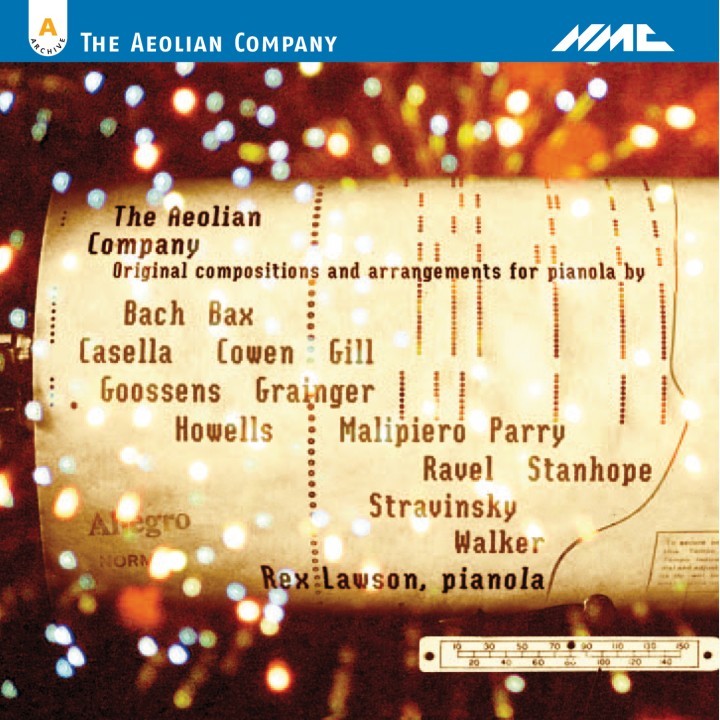Robin Walker
Robin Walker was born in York in 1953 and studied at Durham University with David Lumsdaine. Following Durham, he did three years of postgraduate research at Keble College, Oxford interspersed with a short period at the Collège Franco-Brittanique in the University of Paris; he continued his studies at the Royal College of Music, before taking up a full-time appointment at the University of Manchester in 1980. Here he founded and co-ordinated the New Music/Old Music concert series, directed the Electronic Music Studio and conducted numerous student and professional performances.
In 1981 his Dance/Still for chamber ensemble brought his first Radio 3 broadcast; this piece showed an affinity with late Stravinsky in its balance of opposed states of motion. At the same time, however, Walker was casting the stylistic net wide, producing, amongst other things, a haunting re-composition of the Kink's Waterloo Sunset and the violent ritualised-minimalist meditation of Seven Last Words for electric guitar and percussion. In the summer of 1983, he travelled to Bangalore to learn the art of drumming in traditional South Indian dance. Among creative spin-offs of this visit were the solo viola piece Age/a gita, performed by Yuko Inoue at the Purcell Room.
Since resigning his lectureship in 1987, Robin Walker has lived, on the edge of the Saddleworth moors, patiently exploring new directions in a small number of carefully crafted works. Of these, The Stone Maker, a 30-minute symphonic poem performed and broadcast in 1996 by the BBC Philharmonic under Elgar Howarth, is undoubtedly the most ambitious, engaging with the kind of large-scale symphonic momentum characteristic of Sibelius, Tippett and Robert Simpson, yet without denying Walker's previous interests in the sound-worlds of Boulez and Birtwistle. More traditional in their harmonies and textures are the string orchestra piece Hold Hands Across the Years, premièred in March 1998 by the English Chamber Orchestra, and the chamber opera The Bells of Blue Island.
Robin Walker has also been drawn to projects outside the classical mainstream, including pieces for the Grimethorpe Colliery Band, various ballet and theatre productions, and a school opera based on the Odysseus legend. His music has been heard at various Festivals in this country and abroad. Future plans include a three-act opera along the Wagnerian lines: The Return of Odysseus
From a biography by David Fanning
Robin Walker was born in York in 1953 and studied at Durham University with David Lumsdaine. Following Durham, he did three years of postgraduate research at Keble College, Oxford interspersed with a short period at the Collège Franco-Brittanique in the University of Paris; he continued his studies at the Royal College of Music, before taking up a full-time appointment at the University of Manchester in 1980. Here he founded and co-ordinated the New Music/Old Music concert series, directed the Electronic Music Studio and conducted numerous student and professional performances.
In 1981 his Dance/Still for chamber ensemble brought his first Radio 3 broadcast; this piece showed an affinity with late Stravinsky in its balance of opposed states of motion. At the same time, however, Walker was casting the stylistic net wide, producing, amongst other things, a haunting re-composition of the Kink's Waterloo Sunset and the violent ritualised-minimalist meditation of Seven Last Words for electric guitar and percussion. In the summer of 1983, he travelled to Bangalore to learn the art of drumming in traditional South Indian dance. Among creative spin-offs of this visit were the solo viola piece Age/a gita, performed by Yuko Inoue at the Purcell Room.
Since resigning his lectureship in 1987, Robin Walker has lived, on the edge of the Saddleworth moors, patiently exploring new directions in a small number of carefully crafted works. Of these, The Stone Maker, a 30-minute symphonic poem performed and broadcast in 1996 by the BBC Philharmonic under Elgar Howarth, is undoubtedly the most ambitious, engaging with the kind of large-scale symphonic momentum characteristic of Sibelius, Tippett and Robert Simpson, yet without denying Walker's previous interests in the sound-worlds of Boulez and Birtwistle. More traditional in their harmonies and textures are the string orchestra piece Hold Hands Across the Years, premièred in March 1998 by the English Chamber Orchestra, and the chamber opera The Bells of Blue Island.
Robin Walker has also been drawn to projects outside the classical mainstream, including pieces for the Grimethorpe Colliery Band, various ballet and theatre productions, and a school opera based on the Odysseus legend. His music has been heard at various Festivals in this country and abroad. Future plans include a three-act opera along the Wagnerian lines: The Return of Odysseus
From a biography by David Fanning
Compilations with this composer
CompilationsRelated composers
Related composersExternal Links
Music Map
Discover more about the classical music of today with NMC's Music Map, and exciting and educational online tool which enables you to see and hear the connections between composers, their teachers, pupils, influences and their works.
Music Map

